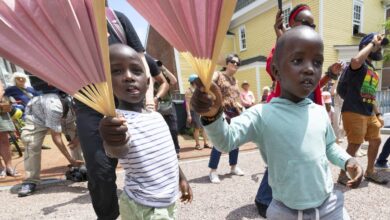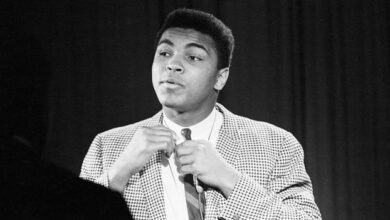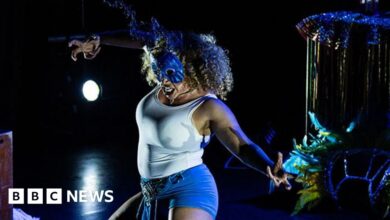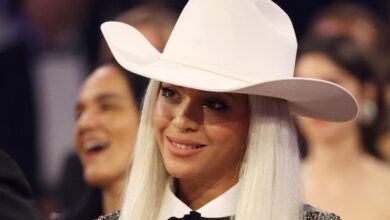The Black Nerds Redefining the Culture
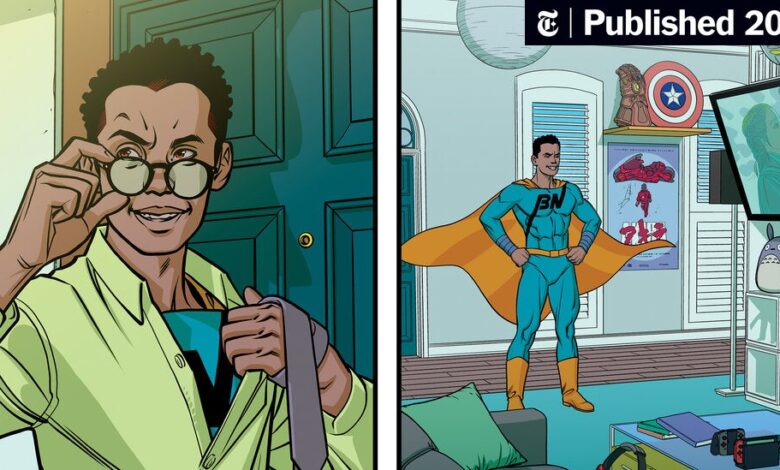
You can see Black women nerds’ influence most especially on television. Jessica Williams and Phoebe Robinson, the podcasting duo behind “2 Dope Queens,” dedicated an episode of their 2018 HBO live performances to the topic of Blerds. “What are you nerdy about?” Williams asks one of their guests, the actress Uzo Aduba, who responds with a rhapsodic reverie on Ms. Pac-Man and Mortal Kombat. With “Lovecraft Country,” the showrunner Misha Green created a Blerd extravaganza, drawing on a predominantly Black cast to imagine a fantasy world still in touch with our own. These Black women creators represent the next phase in the evolution of Black nerd culture, advancing past representation alone to creative ownership. “It’s got to be more than putting a face on the screen, it’s got to be authority,” says Broadnax of Black Girl Nerds. “Black people being in positions of power.”
This inflection point, of Black people in power both in front of and behind the camera, arrived just three years ago. “When it comes to Blerd culture, you have before ‘Black Panther’ and after ‘Black Panther,’” Jennings, the illustrator, says. The power of the film was partly symbolic — the fact of seeing a Black superhero was inspiring for a generation of Black viewers who previously had to imaginatively project themselves onto white protagonists or subsist on secondary characters. Less visible but perhaps more consequential, the film was the vision and product of a largely Black team of creators, led by Coogler. “If there wasn’t a ‘Black Panther,’ we would not have had a ‘Watchmen’; if there wasn’t a ‘Watchmen,’ they would have never given a Black woman millions of dollars to create the HBO show that was ‘Lovecraft Country,’” Horne explains. These successful works of public art and entertainment are matters of personal consequence for nerds — and Black nerds in particular — who suddenly find their passions vindicated. As Horne puts it, “I wasn’t considered mainstream until 2018.”
The triumph of “Black Panther” helps explain the ascendancy of Black nerds today. The film created an opportunity for undercover Blerds to test out their nerdish tendencies in public. Mica Burton witnessed “the feeling of safety among Black people to say, ‘I read comic books. I watch anime. I like Marvel films,’” she says. If your friends were cool with you doing the Wakanda salute, then maybe you could slip in that you still collect Pokémon cards. After 2018, she adds, “we saw a huge uprising of a lot more accounts of Black people on Twitter saying, ‘I like these things!’ and then other people going, ‘I do, too!’ And that’s how communities are formed.”
THE FUTURE OF Black nerds is the future of the retro: a return to the timeworn techniques of storytelling. In a graphic novel or a video game, a Netflix series or a role-playing campaign, you can take things for granted — like racial and ethnic diversity, like equality along the spectra of gender and sexual orientation — that the world beyond is somehow still deliberating. These nerdish things offer freedom for self-fashioning that has historically been denied to Black Americans by a racist imaginary that insisted on projecting Black people in ways that served white supremacist fantasy and power. Black nerd culture rejects the grotesque menagerie of racist stereotypes, as well as the compensatory images of Black cool, by insisting on the full and sometimes messy exercise of human agency. It gives license to be Black and awkward, Black and brainy, Black and free.
Source link

